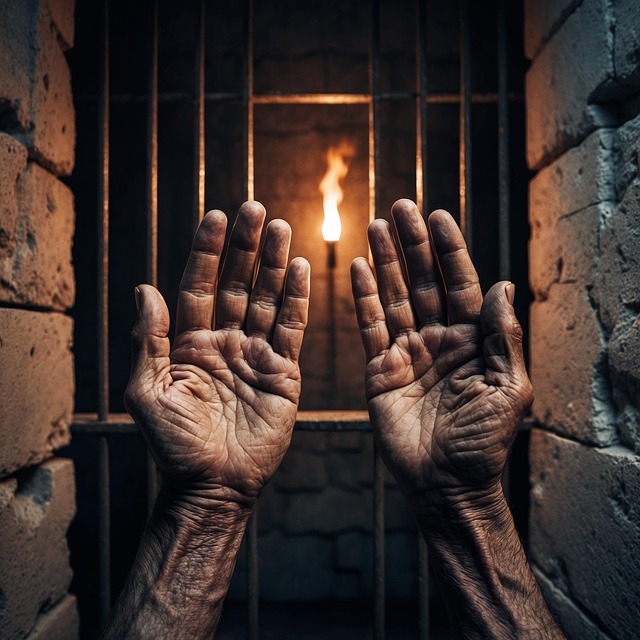Rural communities face distinct challenges in addressing DUI due to lower population densities, limited law enforcement resources, lack of public transportation, and unique cultural norms. Veterans with DUI charges require tailored legal strategies considering invisible injuries like PTSD or TBI. By combining legal representation with supportive services, including mental health counseling and peer support groups, a comprehensive approach is taken to address veteran-specific challenges. Rural Community DUI Prevention initiatives, such as educational workshops, further strengthen cases and promote holistic care, driving safety, and healthier habits within communities.
In rural communities, where the rate of DUI incidents often surpasses urban areas, a specialized approach is needed. This article explores the unique challenges faced by veterans charged with DUI in these regions. We delve into how cultural and environmental factors influence rural DUI prevention and examine tailored defense strategies for veterans. Additionally, we highlight the critical role of supportive services in addressing the complex needs of this demographic, offering a comprehensive understanding of Rural Community DUI Prevention.
- Understanding Rural Community DUI Prevention: Challenges and Unique Factors
- Tailoring Defense Strategies for Veterans Facing DUI Charges
- The Role of Supportive Services in Veteran's DUI Defense
Understanding Rural Community DUI Prevention: Challenges and Unique Factors

In rural communities, addressing DUI (driving under the influence) prevention poses distinct challenges that often go overlooked. With lower population densities and less extensive law enforcement resources compared to urban areas, these regions face unique barriers in combating drunk driving. The lack of public transportation and dense network of isolated roads can make it harder for authorities to patrol and respond quickly. Additionally, rural residents may have limited access to alternative options like ride-sharing services or designated drivers, which are more prevalent in metropolitan areas.
Rural settings also often present cultural and social factors that influence drinking habits. Smaller communities may foster a sense of familiarity and trust that can lead to less restrictive social norms around alcohol consumption. Moreover, longer distances between establishments serving alcoholic beverages might not deter impaired driving as much as in urban centers, where the proximity of multiple venues encourages responsible sharing and alternative transportation choices. Understanding these unique challenges is crucial for developing targeted and effective Rural Community DUI Prevention strategies.
Tailoring Defense Strategies for Veterans Facing DUI Charges

When veterans face DUI charges, their unique experiences and challenges require tailored defense strategies. Many veterans struggle with invisible injuries like PTSD or TBI, which can impact decision-making and behavior. Lawyers assisting veterans in rural communities must understand these complexities and adapt their approaches accordingly.
A personalized defense might involve focusing on mitigating factors, such as demonstrating the veteran’s commitment to recovery, addressing any underlying mental health issues, and showcasing community support. Additionally, leveraging Rural Community DUI Prevention programs and resources can strengthen the veteran’s case by showcasing a willingness to take responsibility and make amends within their specific social context.
The Role of Supportive Services in Veteran's DUI Defense

In the context of Veteran’s DUI defense, supportive services play a pivotal role in tailored help and rural community DUI prevention. Many veterans face unique challenges that can contribute to alcohol-related offenses, including post-traumatic stress disorder (PTSD), substance abuse, and social isolation. These issues often require specialized support beyond legal representation. Organizations dedicated to veteran welfare offer crucial resources such as mental health counseling, substance abuse treatment programs, and peer support groups. Integrating these services into the defense strategy can address the underlying causes of DUI incidents, promoting long-term recovery and rehabilitation.
Moreover, rural community DUI prevention initiatives specifically tailored for veterans can make a significant difference. These efforts may include educational workshops on responsible alcohol consumption, driving safety, and coping strategies for stress management. By engaging in such programs, veterans not only enhance their understanding of DUI laws but also develop healthier habits and support networks within their communities. This comprehensive approach ensures that legal defense is accompanied by holistic care, fostering a safer and more supportive environment for veterans facing DUI charges.
In addressing Rural Community DUI Prevention, understanding the unique challenges faced by veterans is paramount. Tailoring defense strategies that consider their specific circumstances and providing access to supportive services can significantly impact outcomes. By implementing these tailored approaches, we can effectively navigate the complexities of veteran’s DUI cases while fostering a more compassionate and supportive legal system.






